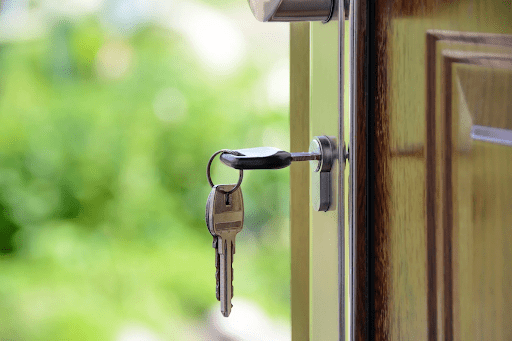If you’re looking for a way to grow your company, becoming a landlord may be an idea worth exploring. Landlords are often in need of reliable tenants who will maintain the property and pay rent on time-qualities that many entrepreneurs possess. There are steps you should take before investing in rental property to ensure your success as a landlord.

1) Choose Your Market Wisely
Contents
Choosing the right market for your rental property is important not only because it will increase demand for your units, but also because it can be surprisingly costly to relocate. Your market should have good economic stability-high median income with low unemployment rates are less likely to experience a recession or housing price collapse. Areas with high growth potential are better suited for investors looking for appreciation, while regions that are growing slowly but steadily may be better suited for investors who plan to hold onto their property long-term.
2) Figure Out Your Financing Plan
Having a financing plan will help you in the long run. There are a few different strategies to consider when figuring out your financing options: purchase property using cash, use money from the lenders, use leverage by taking out a mortgage, or do a mix of all three. Each has its advantages and disadvantages, so make sure you are aware of your options before choosing your plan. For example, if you plan on using money from the lenders, you may be able to secure a loan with a higher ratio than if you were using money from your own pocket. If the economy takes a downturn, however, and property values decline, you may end up owing more on the value of the property than it is actually worth.
3) Hire A Professional Management Company
When you buy a rental property, you’ll want to hire a management company as quickly as possible. Look for a reputable firm that has experience with similar properties and can provide references from past clients. Hiring property management specialist is important because they handle everything from finding tenants and collecting rent to coordinating repairs and upkeep. This service is good to have in order for you to enjoy a stress-free investment while growing your financial assets and cash flow.

4) Keep Up With Repairs
Rental properties need continual upkeep and regular maintenance to keep them in good shape and attract quality tenants. If you’re ever faced with a thorny repair issue, be sure that you hire a professional for the job since performing repairs yourself can lead to further damage or even personal injury. You should plan on allocating funds from your rental property’s monthly income for repairs and upkeep.
5) Your Tenants Are The Key To Success
Your tenants are the key to your rental property’s success-without them, you won’t be able to collect rent or maintain occupancy. While there is no tried-and-true formula for finding perfect tenants, there are steps you can take to improve your chances of success. First, only rent to those who have a strong work history and a steady income-their financial stability will ensure that they can pay the rent each month. Second, run a thorough background check on prospective tenants to verify their identities and employment records. Finally, once you have rented your property out, take extra steps to ensure your tenants are happy and willing to recommend your rental unit to friends.
6) Protect Yourself With Liability Insurance
Landlords are responsible for injuries that occur on their property regardless of whether they were present at the time. Make sure you have liability insurance in place to protect yourself from lawsuits. If someone is injured on your rental property due to your negligence, liability insurance can cover legal expenses and damages. Even if you believe the situation was not your fault, you still need to hire an attorney to defend yourself in court. For example, if a tenant trips and falls on the front steps of your rental unit due to ice or snow, you will be responsible for any personal injury damages unless they were warned about the hazardous conditions.
7) Know The Market
Successful landlords are in tune with their local real estate market. By keeping abreast of property trends, you’ll be able to anticipate changes in the housing market so that you can plan accordingly. For example, if property values are rising quickly, consider buying more rental properties so your net worth increases while renters pay off your mortgages on the properties. On the other hand, if property values are falling and there is a high demand for rental units in your neighborhood, consider selling your property before its value depreciates even further.
Being a landlord is a great way to build your financial assets, receive passive income and diversify your investment portfolio. But, in order to be successful, remember the following tips: ensure your property is well-maintained and up to code, screen potential tenants carefully, and invest in liability insurance to protect yourself. Doing all of these things will put you in a great position to succeed as a landlord and grow your business.